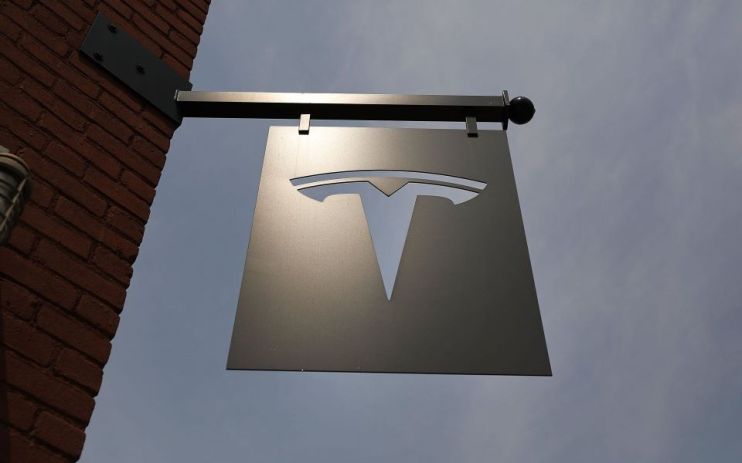Investors pile into Tesla after topping profit expectations

Shares in Tesla surged more than 11 per cent in after-hours trading tonight, following a set of buoyant third-quarter results.
The car maker posted a profit of $1.86 per share, swinging back to profitability. Analysts had expected a loss of 42 cents per share, according to Refinitiv.
Revenue for the three months to the end of September was $6.30bn, slightly missing estimates of $6.33bn. Down from last quarter’s $6.35bn in sales and $6.82bn a year ago, the miss is Tesla’s first revenue decline since 2012.
In the previous quarter, Tesla reported losses of $1.12 per share and $6.35bn in revenue. However this time last year, Tesla heralded a “historic” third quarter with revenue of $6.82bn and earnings per share of $2.90.
Read more: Tesla revenues fall short of expectations despite record cars built
The costs of its Model 3 sedan have weighed heavily on Tesla, as it ploughed returns into growth and investment in expansion. It recently began operations at a new gigafactory in Shanghai, and celebrated record deliveries last month.
Tesla said the difference between this time last year and 2019’s third quarter could be attributed in full to the rise in production costs, and said the number of leased vehicles in circulation had tripled year on year.
The firm added it is on track to meet its car delivery forecast for this year, and that the Model Y is ahead of schedule for a summer 2020 launch.
Read more: Tesla share price falls after it misses deliveries target
“We are positioned to accelerate our growth further through Gigafactory Shanghai, Model Y and also through increasing build rates on our existing production lines. These capacity increases will allow for higher total vehicle deliveries and associated revenue,” it said.
“We also expect to gradually release nearly $500m of accumulated deferred revenue tied to Autopilot and full self-driving features.”
Nicholas Hyett, an equity analyst at Hargreaves Lansdown, said: “While sales and revenues are down year-on-year, it turns out the market was overcautious.”
“We actually think the positive, and not insubstantial, free-cash flow is perhaps more important – because it means Tesla’s self-funding. Given the breakneck speed of expansion, Tesla will face significant demands on its cash pile and generating enough to fund the growth will help the group avoid overreliance on the market.”
Image credit: Getty